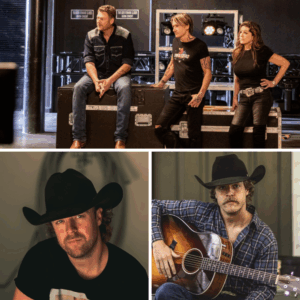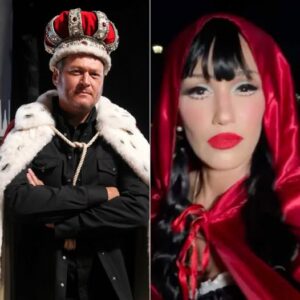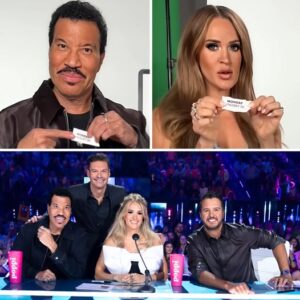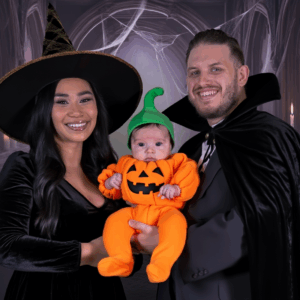As the confetti from past finales settles and the stage lights dim on another chapter of vocal virtuosity, NBC’s The Voice Season 28 is hurtling toward its climax with a frenzy that’s as chaotic as a four-chair turn. Premiering on September 22, 2025, with a star-studded coaching quartet—Reba McEntire’s twangy wisdom, Michael Bublé’s silky standards, Niall Horan’s pop polish, and Snoop Dogg’s laid-back swagger—the season has already redefined the competition’s DNA through a slew of innovative twists. But as we barrel into November, the real drama isn’t just in the Knockouts or the impending two-night live finale on December 15 and 16; it’s in the ever-shifting schedule that’s forcing fans to recalibrate their viewing habits. From dual nights to Mondays-only marathons, and now a late-night pivot to make room for sitcoms and sports, The Voice is compressing its timeline like never before. The result? A hyper-accelerated sprint to the finish where any artist from any team could snatch the $100,000 prize and Universal Music Group contract. In this revamped arena, the winner’s circle isn’t reserved for frontrunners—it’s wide open, and the chaos is electrifying.
The schedule metamorphosis began innocently enough, a ripple from NBC’s broader programming shuffle. Season 28 kicked off with the familiar Monday-Tuesday rhythm at 8 p.m. ET, delivering six Blind Audition episodes that hooked viewers with raw talent and the debut of the “Carson Callback”—host Carson Daly’s golden ticket for one overlooked artist to belt it out a second time. Ryan Mitchell, a soulful crooner from Atlanta whose initial audition fell flat, became the Callback’s poster child when Daly handed him the card mid-Blinds. Chairs spun furiously on his redo, landing him on Team Snoop and proving the twist’s power to rewrite narratives. But by October 20, as Battle Rounds wrapped their self-paired duets (another game-changer: artists, not coaches, pick their opponents), the axe fell. To accommodate the NBA’s long-awaited return to NBC—100 games streaming on Peacock and broadcast Tuesdays—the show slashed to Mondays only. Two-hour episodes on October 20 and 27 bridged Battles into Knockouts, but the compression amplified every note’s weight. “It’s like cramming a semester into a weekend,” Bublé quipped in a post-episode interview, his eyes twinkling behind those signature frames. “Artists are rising faster, falling harder—pure adrenaline.”
The latest pivot, announced October 31 and effective November 3, cranks the dial to 11. New episodes now slot into the 9 p.m. ET/8 p.m. CT hour, down from two-hour blocks, to clear space for Reba’s sitcom Happy’s Place Season 2 in the 8 p.m. lead-in. This isn’t mere logistics; it’s a narrative accelerator. Knockouts, already underway with mega-mentors Zac Brown and Joe Walsh guiding the fray, will unfold in bite-sized bursts: five one-hour installments through November, spotlighting head-to-head showdowns where coaches pick winners sans steals—a ruthless edict that’s culled teams to skeletons. Each coach’s “Mic Drop” button adds fireworks: one per team for the standout who doesn’t just win their matchup but dazzles outright. Viewers then vote on the four Mic Drop recipients, crowning one with a New Year’s Day slot at the Rose Parade. “That vote? It’s democracy in decibels,” Horan shared on his podcast, his Irish lilt laced with excitement. “Fans decide who parades into 2026—talk about stakes.” Playoffs follow on December 1 and 8, still at 9 p.m., narrowing to 20 artists (five per team) via coach saves and public polls. Then, the live gauntlet: Semifinals December 9, whittling to a Top 8 where viewer votes reign supreme, no coach guarantees in sight.
This temporal tango isn’t without precedent—The Voice has danced with disruptions before, from pandemic pods to writers’ strike shortenings—but Season 28’s feels seismic, a direct response to slipping ratings and streaming skirmishes. Averaging 6.2 million viewers through Blinds (down 8% from Season 27’s Adam David triumph), the show needed a jolt. Enter the twists: Blinds’ Callback salvaged hidden gems; Battles’ artist-led pairings sparked organic rivalries, like Team Reba’s fiery folk face-off between sisters vying for the same spot; Knockouts’ no-steals policy turned every duel into a do-or-die dirge, with Bublé lamenting, “I wanted to steal half of Snoop’s squad—now they’re ghosts.” Playoffs amp audience agency, with “Comeback Stages” letting eliminated artists claw back via Twitter polls. “We’re handing the mic to the people,” Daly explained in a September presser. “Less coach control, more crowd chaos—that’s where magic happens.” Snoop, ever the philosopher, nodded along: “It’s like freestyling without a net. You adapt or you fade—real hip-hop heart.”
These evolutions have leveled the coaching landscape, erasing old hierarchies and priming a cross-team coronation. Historically, wins clustered: Bublé’s back-to-back (Seasons 26-27), Horan’s duo (24, 25 via proxies). But Season 28’s parity plays have scattered stars evenly. Team Snoop, bolstered by Callback Ryan Mitchell’s gravelly R&B revival of “Use Somebody,” boasts underdogs like Fresno’s Ralph Edwards, whose raspy “Dive” earned a Mic Drop and a viral proposal clip (more on that later). Reba’s squad pulses with country cred—Aaron Nicholls’ twangy “Tennessee Whiskey” stole hearts, while battle advisor Nick Jonas whispered tweaks that turned a near-miss into gold. Bublé’s velvet team shines via Broadway belter Elias Gomez, whose “Go the Distance” four-chair turn evoked Phantom vibes, and Horan’s pop progeny, like Johannesburg’s Janis Joplin-esque powerhouse behind “Behind Blue Eyes.” No team’s invincible: Snoop’s zero one-chair Blinds (a franchise fifth) forced steals galore, blending genres into a gumbo—country-rap hybrids, folk-soul fusions—that defies prediction.
The schedule squeeze supercharges this unpredictability, compressing six weeks of drama into a November-December blur. Fans, once luxuriating in recaps, now binge Mondays like live-show lifelines. “It’s intense—I’m mainlining Voice like espresso,” tweeted one devotee, echoing #VoiceScheduleChaos’s 150,000 posts. Peacock streams next-day drops, but the live buzz—AR fan-vote overlays, real-time emoji reactions—pulses strongest in prime time. Yet, the crunch isn’t all cheers: artists whisper of vocal strain from back-to-back rehearsals, coaches of jet-lag from advisor crossovers (Lizzo’s Team Snoop sass sessions in L.A., Lewis Capaldi’s brooding Belfast vibes for Horan). “We’re sprinting a marathon,” Reba admitted, her Oklahoma drawl weary but warm. “But these kids? They’re built for it.” Offstage, the frenzy fosters bonds: impromptu hotel jam sessions, Snoop’s weed-free wellness circles (herbal teas only, per network edict).
As the two-night finale looms—December 15 performances, 16 results, both at 8 p.m. for a confetti-capped extravaganza—the open-field odds ignite speculation. Oddsmakers peg Team Bublé’s Elias at 5-to-1 (his standards slay semifinals), but Snoop’s Ralph surges at 7-to-1 post-proposal (backstage knee-drop to girlfriend Crystina Lopez after “Dive,” judges crashing the party with toasts). Reba’s Aaron (4-to-1) channels her win with Asher HaVon, while Horan’s mystery wildcard—a Capaldi-mentored soul sister—lurks at 6-to-1. “Any team’s tape could cross the line,” Daly teased. “No legacies here—just legacies made.” Guest spots tease crossovers: Ed Sheeran dueting Horan’s hopefuls, Dolly Parton blessing Reba’s, Eagles nods to Walsh’s mentorship.
In this whirlwind, The Voice reaffirms its ethos: voices over visuals, heart over hype. The schedule’s shuffle, born of boardroom battles, births beauty—rawer risks, fiercer finishes. As November 3’s 9 p.m. opener spotlights Mic Drops, fans recalibrate remotes, ready for the rush. Season 28 isn’t just changing slots; it’s shifting paradigms, proving the truest twist is talent’s triumph. Tune in, vote loud—the crown awaits, and it’s anyone’s anthem.




